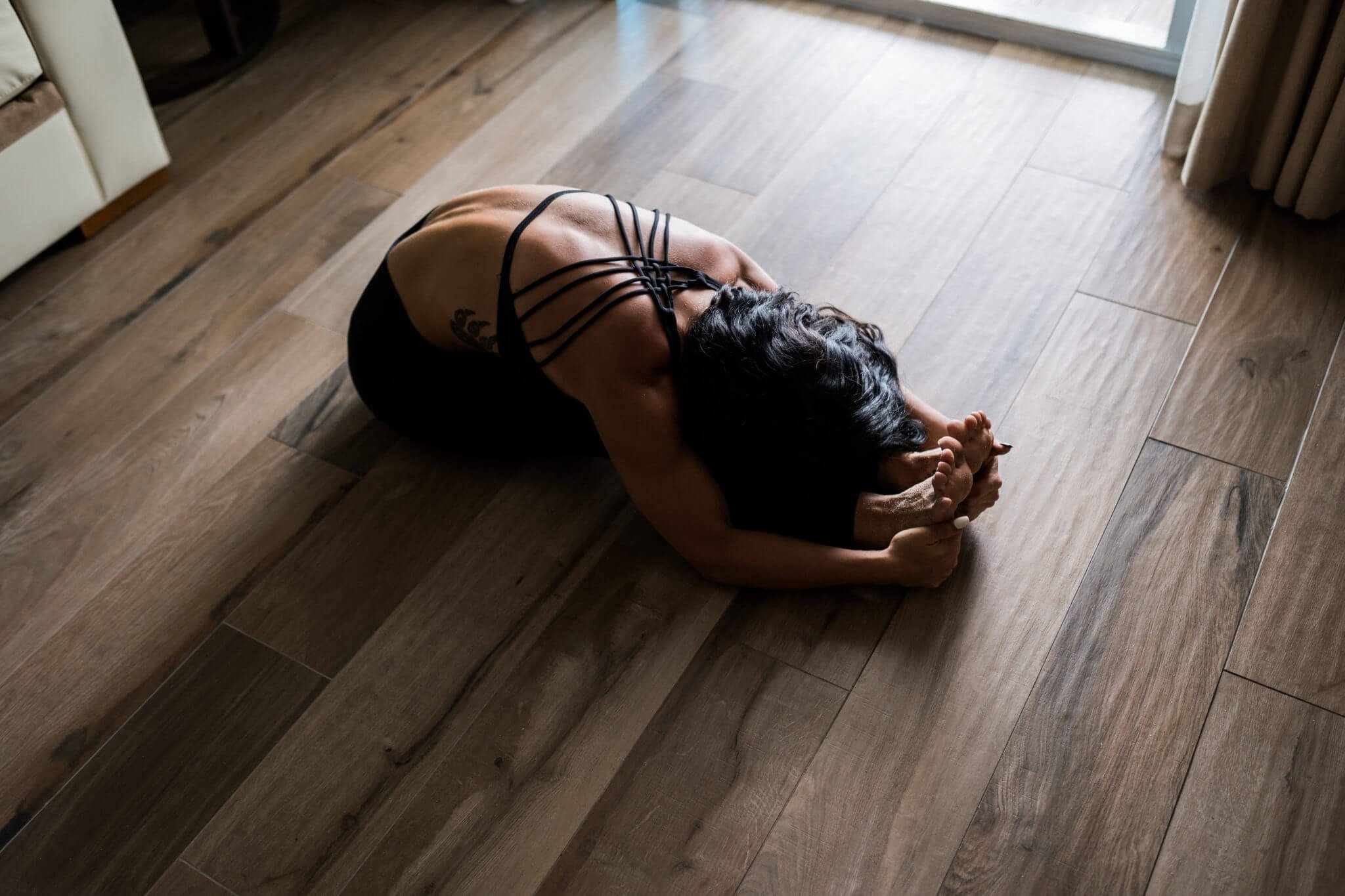Poor Sleep: The Abuse No One Is Talking About
If we live until we are ninety, we will have spent (roughly) thirty years of our life asleep. While this might be startling to some, it’s safe to say that sleep is essential based on that estimation alone. With countless studies to prove it, adult humans need 7-9 hours of rest per night.
How many of us are consistently sleeping within those parameters? Unfortunately, in many societies, sleep is placed on the back burner. We emphasize our “to-do” list more than our need to slumber.
Have we ever stopped to ponder how different our lives would be if we had a consistent bedtime? If we slept for enough hours every night? If we could go to sleep without worrying, allowing us to rest?
In today’s post, we are diving into sleep. We will discuss what occurs after our head hits our pillow, and will touch on insomnia and chronic sleep deprivation. Furthermore, we will explore the relationship sleep (or lack there of) has on our athletic performance.
What Happens When We Rest
Beginning with our brain, sleep functions to aid our memory, decision-making, and learning abilities. Without enough rest, our ability to function will suffer dramatically.
“Through an explosion of discoveries over the past twenty years, we have come to realize that evolution did not make a spectacular blunder in conceiving of sleep. Sleep dispenses a multitude of health-ensuring benefits, yours to pick up in repeat prescription every twenty-four hours, should you choose (many don’t).”
Matthew Walker, Ph.D., “Why We Sleep: Unlocking the Power of Sleep and Dreams”
It is no longer a mystery how beneficial sleep is to our wellbeing. Significant discoveries have been made over recent years, proving that what many take for granted is the key to unlocking our potential.
If the information is out there regarding the significance of sleep, why is no one talking about it? Rest seems to be an after-thought for many, including our government and media. We hope that readers of this blog will take to heart the message and put it into practice. Our lives depend on it.
“Overnight Therapy”
This theory is brought to light in the book, “Why We Sleep” by Matthew Walker. In rapid eye movement (“REM”) sleep, our dreams serve to make sense of our daily dealings and dilemmas. Our qualms of the day are put into perspective with our previous experiences, allowing for clarity and understanding. Furthermore, our brain separates our emotions from disturbing encounters.
Consider sleeping a review of our day. Rest will disengage painful emotions from confrontations, save the lessons and leave the sorrow. There is merit behind the habitual advice to “sleep on it” when making tough decisions. Our brain works wonders for us without us having to lift a finger.
Our Bodies Recover At Night, Too
Additionally, our musculoskeletal system benefits from a whole night of rest as well. While we dream, our bodies create proteins, repair our muscles and create new tissues. With adequate rest, our essential hormones remain in balance.
Are we sleeping less than 7 hours per night? If so, our body will have poor control over appetite-suppressing hormones. This poor control will result in excessive eating during our wakeful hours(1). Think of a time when we were craving sugary or high-fat foods. If we reflect on these experiences, we will find that sleep was a probable contributor. Sleep is essential to controlling our appetite and regulating metabolism.
Perhaps more importantly, our immune system cannot function well without enough rest. Poor sleep quality or short sleep times may be to blame for frequent bouts of sickness. We are all familiar with the feeling of needing to sleep when we are sick. Hopefully, the correlation between sleep and our immune system is becoming less muddy to all. Sufficient rest is a vital pillar to optimal health and wellness.
Insomnia
We commonly toss around this word and are quick to self-diagnose ourselves as “insomniacs.” While there has been a stark increase in people living with insomnia, other factors are congruent with these changes.
The most common causes of insomnia are emotional concerns and anxiety. When our heads hit our pillow, a lack of mindfulness will mean our thoughts are racing. We are perpetually “planning” or pondering the past. Considering how busy our minds are at bedtime, it’s no wonder the rates of chronic insomnia have skyrocketed.
Stress Hormones
When we experience stress, the hormones cortisol, epinephrine and norepinephrine rise. These chemicals benefit us in times of (real) danger; however, chronic worrying ensures we are in a state of “danger” for the vast majority of a day.
To fall asleep, our levels of stress hormones need to be reasonable. Our ability to transition into deep, non-REM (“NREM”) sleep is also dependent on the average ranges of these chemicals. Restorative MVMNT practices focus on releasing tension and returning our emotional state to one of tranquility. Here at MVMNT, we understand and appreciate a solid night of rest as much as the mobility practice itself.
Cortisol Haunts Our Dreams
When we dream, norepinephrine stops circulating – which is the only time this occurs in a twenty-four-hour period. Turning off this chemical allows us to experience our dreams in a safe space – free of distress and worry.
When we drift off to sleep in a state that coincides with chronic stress, our dream (REM) sleep is interrupted. Frequent awakenings throughout the night mean we will wake up foggy, tired and cranky. Having an abundance of time asleep is not enough to combat chronic stress. We also need adequate sleep quality to wake up feeling rested and rejuvenated.
“Patients with insomnia have a lower quality of sleep, reflected in shallower, less powerful electrical brainwaves during deep NREM sleep. They also have more fragmented REM sleep, peppered by brief awakenings that they are not always aware of, yet still cause a degraded quality of dream sleep. All of which means that insomnia patients wake up not feeling refreshed. Consequently, patients are unable to function well during the day, cognitively and/or emotionally.”
Matthew Walker, Ph.D., “Why We Sleep: Unlocking the Power of Sleep and Dreams”
Start your free 7-day MVMNT trial and try our restorative sequences for calming the mind and body before bed.
Sleep Deprivation: Why It Feels “Normal”
A study conducted in 2009 by sleep researcher David Dinges aimed to scrutinize sleep deprivation(2). The most alarming fact is how skewed our judgement is when our brains are sleep-deprived.
Participants of the study were sleep-deprived and then questioned about it. When examined, they consistently underestimated their degree of performance disability. A similar comparison is a friend who has had too much to drink and assures, “I’m fine to drive home.”
Simply put, when we are sleep-deprived, we do not know how sleep-deprived we are. If sleep restriction is a chronic habit, we will adapt to our impaired performance and cognitive functioning. These disabilities will feel normal to us, causing us to believe four to six hours of sleep is enough. Brain fog and low energy levels will become a trap, gripping our mind, body and spirit in a familiar feeling of flatness.
Sleep Affects Performance: Here’s How
Have you ever attempted the same/similar workout twice at different times? Did you notice the same activity feels light one day and completely exhausting the next? The quality of our sleep is a likely factor in these noticeable differences. In the future, if we are mindful of how we’re feeling throughout our day, take note of how much sleep we had the night before. The results may be enlightening.
There have been countless studies involving the effects of sleep on athletic performance. What’s clear is the difference between a PR or a podium finish is potentially fractions of a second, pound or kilogram. Why not ensure we have the best possible chance by prioritizing rest?
Given the potential consequences of insufficient sleep on health, behaviour, attention, and learning and athletic performance, interventions (e.g., tailored training and even perhaps schooling schedules) to support adequate sleep in youth athletes should be implemented.
Bergeron MF, Mountjoy M, Armstrong N, et al, International Olympic Committee consensus statement on youth athletic development, British Journal of Sports Medicine 2015;49:843-851
When we sleep less than eight hours per night, time to physical exhaustion declines dramatically. Our lactic acid production increases and our blood oxygen saturation decreases. Furthermore, our sweat production drops, meaning our bodies are less efficient at cooling, and we tucker out quicker.
According to a 2014 study, participants who slept six hours/night on average had a 72% chance of injuring themselves. In contrast, participants sleeping 8 hours/night had a 35% chance of injury(3). Resting for a mere two hours less per night may have devastating consequences on our athletic careers.
Napping For Success
Did you know that many Olympic-level athletes take frequent naps? Renowned Olympian Usain Bolt was infamous for taking naps before winning gold-medal races. Studies have shown that daytime naps improve motor skill memory, reduce perceived exertion and lessen muscle fatigue(5). Rest before a big race or competition could mean the difference between winning and losing.
Rest Post-Exertion Is Crucial
In terms of recovery and future performance, adequate sleep post-workout is vital. As discussed earlier, we must ensure that we rest well and long enough to maximize our body’s restoration process.
“Post-performance sleep accelerates physical recovery from common inflammation, stimulates muscle repair, and helps restock cellular energy in the form of glucose and glycogen”
Matthew Walker, Ph.D., “Why We Sleep: Unlocking the Power of Sleep and Dreams”
Moving Forward: Let’s Sleep Better
Now that we have seen the facts surrounding our sleep, we might wonder how we make changes for restorative sleep. Our first piece of advice is to start slow. Make changes at a pace that works for you. After all, a journey of a thousand steps starts with a single one. If you need some help getting started, here are tips for better sleep:
Practice Mindfulness Before Bed: We can practice grounding via meditation, breathwork or stretching (to name a few). Are you interested in guided meditation or specific sleep routines? Click here to start your seven-day free trial and have unlimited access to MVMNT’s self care practices.
Set A Regular Bedtime: If a regular bedtime is within reach, make it happen! Set an alarm for 30 minutes before you wish to drift off. Stay consistent and make your bedtime routine something to look forward to.
No Devices 60 Minutes Before Sleep: Smartphones, tablets and TVs all emit blue light, suppressing melatonin release. Melatonin is one of the hormones that help us to fall asleep. Using a blue light device too close to bedtime will cause difficulty drifting off.
No Caffeine Eight Hours Before Bed: Caffeine may have stimulating effects for up to eight hours after consumption. Finding it impossible to make it through the last eight hours without caffeine? Start dedicating more time to sleep and watch the need for caffeine disappear!
We hope you enjoyed this post and are taking away the crucial message that sleep is extremely important for your health. Be sure to check out other informative MVMNT blog posts by clicking here.
Sources:
https://www.healthline.com/health/why-do-we-sleep#weight-maintenance
https://www.thieme-connect.com/products/ejournals/abstract/10.1055/s-0029-1237117
Book: “Why We Sleep: Unlocking The Power Of Sleep And Dreams” by Matthew Walker, Ph.D.











